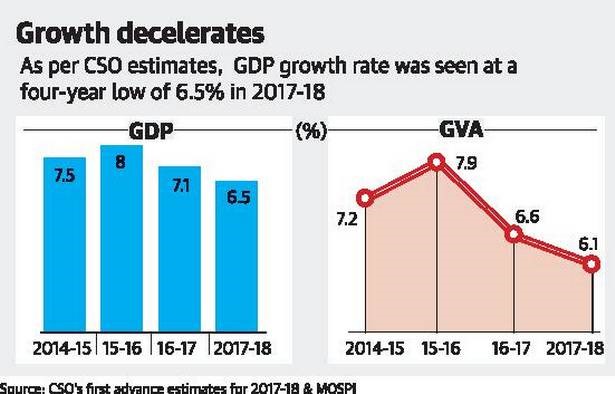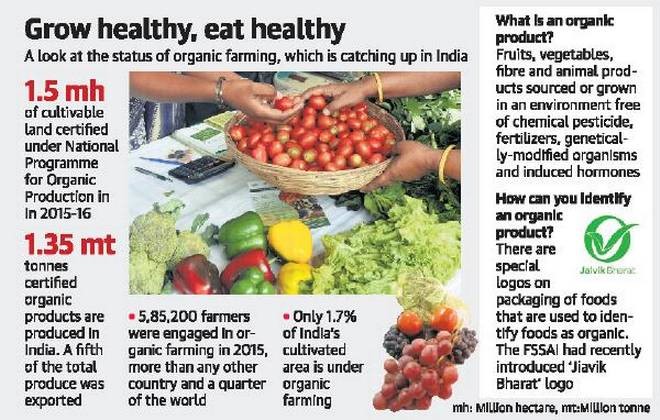IASbaba's Daily Current Affairs Analysis
IASbaba’s Daily Current Affairs (Prelims + Mains
Focus)- 6th January 2018
Archives
(PRELIMS+MAINS FOUCS)
United States suspends security assistance to Pakistan
Part of: GS Paper II- International relations
Key pointers:
- The United States has suspended more than $1.15 billion security assistance to Pakistan, accusing Islamabad of harbouring terror groups like the Afghan Taliban and the Haqqani Network within its border and showing unwillingness to take “decisive actions” against them.
- The freezing of all security assistance to Pakistan comes days after President Donald Trump accused Pakistan of providing “safe haven” to terrorists.
- Prominent among the suspended amount include $255 million in Foreign Military Funding (FMF) for the fiscal year 2016 as mandated by the Congress. In addition, the Department of Defense has suspended the entire $900 million of the Coalition Support Fund (CSF) money to Pakistan for the fiscal year 2017.
- The U.S. will now not be delivering military equipment or transfer security-related funds to Pakistan unless it is required by law.
- The action is not irreversible. All the funding will be available to Pakistan, if it undertake to take adequate measures against terrorism.
Article link: Click here
Decelerating Growth
Part of: GS Paper III- Indian economy
Key pointers:
- The Central Statistics Office (CSO) on recently forecast that GDP growth in the current financial year ending March 31 will slow to a four-year low of 6.5% dragged down by deceleration in the agriculture and manufacturing sectors.
- In agriculture, it will be because of a base effect because last year saw a very high growth rate because it followed two years of drought.

Pic credit: http://www.thehindu.com/business/Economy/article22378941.ece/alternates/FREE_615/TH06new%20Page%201%20GDPcol
Article link: Click here
Labelling on the package of organic food made mandatory
Part of: GS Paper II- International relations
Key pointers:
- It will be illegal to sell organic food that was not appropriately labelled so from July 2018.
- The Food Safety and Standards Authority of India (FSSAI) had issued regulations that required food companies selling organic produce to get certified with one of the two authorities — National Programme for Organic Production (NPOP) or the Participatory Guarantee System for India (PGS-India).
- Labelling on the package of organic food shall convey full and accurate information on the organic status of the product. S
- For nearly two decades now, organic farming certification had been done through a process of third party certification under the NPOP. It was run by the Ministry of Commerce and was used for certifying general exports.
- The PGS-India programme, in contrast, had been around for only two years and — unlike the top-down approach of the NPOP — involves a peer-review approach. Here, farmers played a role in certifying whether the farms in their vicinity adhered to organic-cultivation practices.

Pic credit: http://www.thehindu.com/news/national/article22378458.ece/alternates/FREE_660/TH06Organic%20foodcol
Article link: Click here
(MAINS FOCUS)
INTERNATIONAL
TOPIC: General Studies 2:
- India and its neighbourhood- relations.
- Bilateral, regional and global groupings and agreements involving India and/or affecting India’s interests
- Effect of policies and politics of developed and developing countries on India’s interests
Pragmatic engagement with Russia
Background:
Since the end of the Cold War, the West and especially America viewed Russia with unbelievable superiroity. Through his eight-year tenure, US president Barack Obama dismissed Russia as a “regional power”.
Nearly three decades after the fall of the Berlin Wall, America and Europe are now calling Russia a political and military threat.
This transformation of the Western perceptions of Russia is because of actions taken by President Vladimir Putin. He has surprised the West by putting Russia right back at the centre of great power politics.
Russia at centre of great power politics:
- Putin’s military modernisation, a robust nuclear doctrine and a penchant for coercive diplomacy have become a cause of concern for Russia’s European neighbours.
- Beyond Europe, Russia has joined China in reshaping the geopolitics of Eurasia.
It has re-emerged as a critical player in the Middle East.
In partnership with Beijing, Moscow also created regional institutions like the SCO, challenging Western primacy in international institutions.
Moscow has demonstrated the capability to disrupt Western plans with an asymmetric strategy.
Pragmatic engagement:
Russia’s tightening embrace of China and its way of handling the Taliban and the Pakistan army are generating unease. Instead of lamenting, Delhi must reimagine India’s relations with Russia in 2018 and beyond on the basis of clear-eyed realism.
Three elements must constitute this pragmatic engagement:
- Having long-wished and campaigned for a multipolar world, Delhi must learn to live with it.
A world of many powers is far more unstable than the Cold War duopoly and the unipolar moment. Realignment, dealignment and multi-alignment are the features of the contemporary world.
India, on its part, has sought to hold onto Russia while rapidly expanding its ties with the US. Russia, which drew closer to India in the 1960s to counter China, now hangs on trilateralism with Delhi and Beijing.
But the reality is India is trying to balance China by turning to America and Japan.
Russia is trying to balance the West by aligning with China.
India can’t expect a veto over Russia’s China policy, nor it can cede one to Moscow on India’s ties with the US. India’s bilateral ties with Russia must necessarily be defined by these boundary conditions in the near term. - India needs to appreciate Russia’s long-term strategy towards the West. What Putin wants is an honourable accommodation with the West that Russians feel was denied after the collapse of the Soviet Union. In a world of changing distribution of power, Russia is aware that it can’t reinvent a duopoly with America. Putin wants to make Russia a “swing state” in the global balance of power marked by the rise of China and the uncertain evolution of America.
- If Russia is conscious of its limitations, Delhi’s strategic community seems hesitant to acknowledge India’s strengths. India’s GDP today, at $2.4 trillion, is nearly twice that of Russia. Many in Delhi’s foreign policy establishment, who grew up thinking of Russia as a warm blanket in a cold and uncertain world, are unprepared for a relationship that is more in tune with the changed circumstances in which India is emerging as a power in its own right.
Russia’s relative weight may have diminished, but it has a long tradition of great power diplomacy. It has military capabilities and the political will to use force that together can shape global and regional balances. As middle powers, there is much that Delhi and Moscow can do with each other.
Conclusion:
In the new circumstances, Delhi and Moscow must move towards a practical relationship that focuses on give and take wherever possible. The two sides must also carefully manage the inevitable differences that arise.
Connecting the dots:
- India has always strived for multi-polar world. In this light Russia’s actions should not be seen as a threat. It is time that India engaged pragmatically with Russia. Discuss.
INTERNATIONAL
TOPIC:General Studies 2:
- India and its neighbourhood- relations.
- Bilateral, regional and global groupings and agreements involving India and/or affecting India’s interests
- Effect of policies and politics of developed and developing countries on India’s interests
India-ASEAN: 25 years of relationship
Background:
ASEAN has subtly resisted to the concept of “Indo-Pacific”, and preferred “Asia-Pacific”, which, by definition, seems to exclude India. Such views need to be addressed by our foreign policy establishment, because we are at a defining moment in the Indo-ASEAN relationship.
Not only was 2017 the golden jubilee year of ASEAN’s founding, it also happens to mark 25 years of Indo-ASEAN engagement, and 15 years of summit-level meetings.
10 ASEAN leaders will be the guests of honour at India’s 2018 Republic Day celebrations, and their exchanges could decide the future course of this relationship.
Issues:
- ASEAN has been blamed for a false sense of complacency and for sidestepping hard security issues. The 2012 ASEAN Summit saw emerging tensions between the Philippines, Cambodia and Laos, under Chinese pressure, on South China Sea issues.
- There is also criticism that having painstakingly built a set of multilateral processes in the security arena, ASEAN has failed to develop proactive agendas that would take the grouping beyond trade and commerce, towards collegiate diplomacy and collective conflict management.
An “emerging China” had transmuted into an “erupting China”, an alarming phenomenon that, calls for multi-lateral efforts to “bring under control”. - Chinese diplomats have left little doubt, that China would avail the earliest opportunity to create a new “rules-based order”, framing international laws and rules that not only provide retrospective endorsement of its conduct, but also facilitate its vision of the new “China Dream”.
- For over six decades, peace, stability and prosperity in the Asia-Pacific had been underwritten by America, sustained by US naval presence. Neither the US “pivot to Asia” nor the subsequent “rebalance” has served to restore regional equilibrium disturbed by China’s assertive behaviour.
China’s creation of artificial islands in the South China Sea and their militarisation are now a fait accompli unlikely to be reversed. This blatant disregard of UN Laws of the Seas as well as the international justice system has triggered regional fears about the impending imposition of a Chinese hegemony on the region. - Having stood up to China, on Doklam as well as OBOR, India’s supporters in ASEAN visualise it as a rising economic and military entity worth having on their side.
Others argue that India has, so far, brought little to the ASEAN table, and point to its diplomatic equilibrium, that stands in stark contrast to Chinese activism on the Rohingya and North Korean issues.
Way forward:
- The geo-physical Malacca Strait barrier is important but we need to equally focus on Indo-ASEAN integration. PM Modi’s “Act-East” vision must not lose steam due to sub-continental and domestic distractions, as well as an understaffed and overstretched diplomatic officials.
- India’s domain of maritime interest — now stretching right across the Indo-Pacific — offers a wide range of opportunities quite apart from the nascent “quadrilateral”.
In 2015, PM Modi had defined his vision of “Sagar” as “a future for the Indian Ocean that ensures security and growth for all in the region”. This vision needs to be unshackled from its Indian Ocean moorings and adapted for an all-round maritime outreach.
Sustaining “good order at sea” is a vital enterprise that demands collaborative multi-lateral action. Safety of shipping, anti-piracy operations, search-and-rescue and disaster relief are responsibilities — so far outsourced to the Americans and Europeans — which Indo-Pacific navies must jointly shoulder.
Conclusion:
Without relying on the crutch of US endorsements about its status as a “global power”, India must envision broader horizons for itself.
The initiation of an “Indo-Pacific Maritime Partnership” that seeks mutually-beneficial maritime security cooperation with ASEAN nations will put it in a leadership role. But slogans need to be backed up by strategies — thus India should craft a National Maritime Strategy.
Connecting the dots:
- India and ASEAN are celebrating 25 years of their engagement. Discuss how far the partnership has been strengthened and what more needs to be done.
- India’s focus over ‘Quad’ grouping or usage of Indo-pacific term has created apprehensions in ASEAN. On the other hand the ASEAN nations too want India too play a defining role. In this light discuss the importance of being pragmatic and adopting a balance approach.
MUST READ
Enabling a law
Memory, myth and memorial
This too is a right
An anti corruption bond
All is not well with Aadhaar














